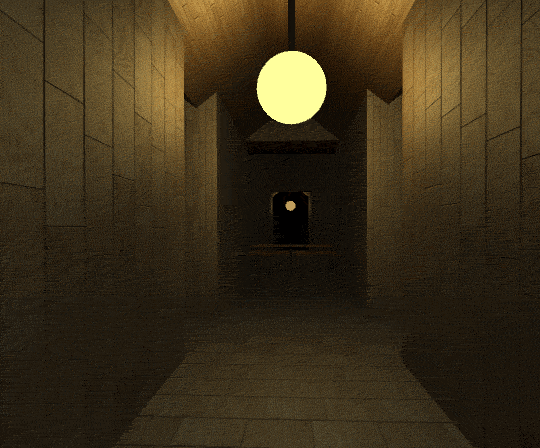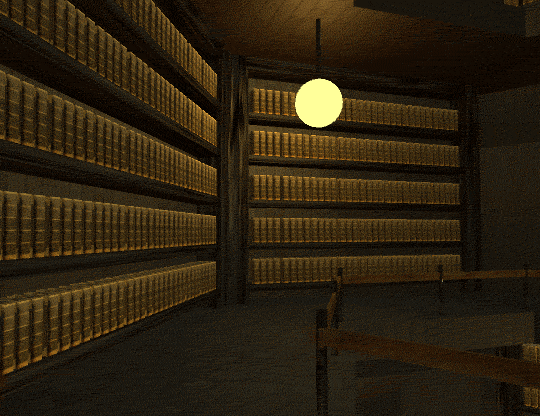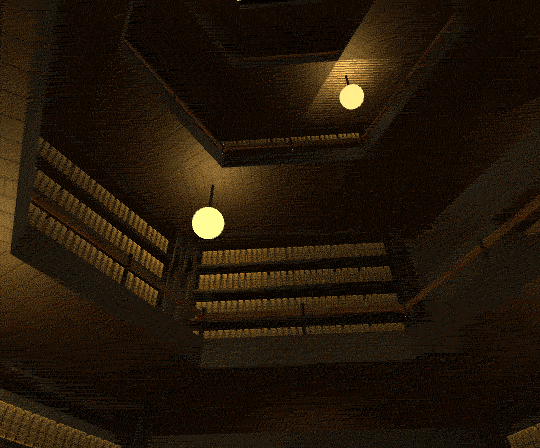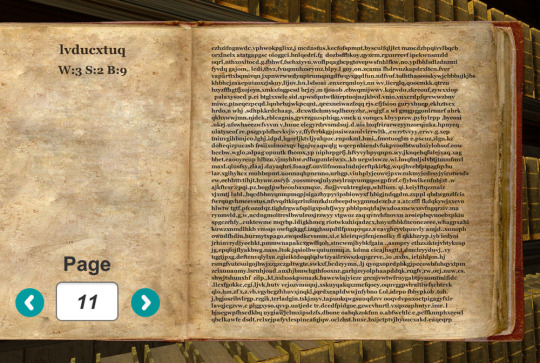


Library of Babel 3D
I kind of like that adaptations of Borges’ “Library of Babel” are becoming their own microgenre. The unique thing about Keiwan Donyagard’s version is that it acts as an interface to Jonathan Basile’s web version, meaning that not only is it a fairly faithful adaptation, down to the spatial configuration, but that it also includes the ability to search the library.
It misses a trick if you jump off the balcony, because the loading speed doesn’t let you fall indefinitely like in the story. Still, it’s otherwise radically faithful to both Borges’ story and the contemporary algorithmic implementation.
Putting yourself into a virtual recreation of a space from a story is a way to gain insights into the text that you might otherwise overlook. It’s not the same thing as a reading the story, just as following my bot that’s exploring the Roman Empire isn’t the same thing as travelling there myself, but it does give insights that we otherwise wouldn’t have spent time to contemplate.
Exploring Borges’ literary space in a first-person perspective made me realize something that I think is subtly embedded in Borges’ story and that is also highly relevant to procedural generation. Which is that you’ll never encounter a large open space in the Library of Babel.
Even with an infinite generator you can’t get out of it more than you put in it. Infinity doesn’t mean everything; or, rather, there are levels of infinity. There are an infinite number of integers, but that list doesn’t include any of the also infinite fractions.
The Library is infinite, but every room within it is hexagon. The inhabitants don’t even conceive of a differently sized space because it wouldn’t fit. Even in the story itself, how can a language of only 23 letters include a book entitled Axaxaxas mlö? Has Tlön colonized even this place?
Just because your procedural generator is infinite doesn’t mean that it will include all possible variations. There will be things outside its scope, rooms that it is unable to construct. Even if some of its outcomes are theoretically possible, your random number generator’s flaws may fail you.
But just because your generator only has a cardinality of Aleph-Null at best, that doesn’t mean that it is any less unimaginably vast. If you added all the grains of sand and the stars in the sky you would never equal the imperfect copies of just one of the books in the Library.
Combined with the insight that you can encode any given text via another text, and you can recreate the librarians’ despairing search for meaning and order…
https://libraryofbabel.info/LoB3D.html

